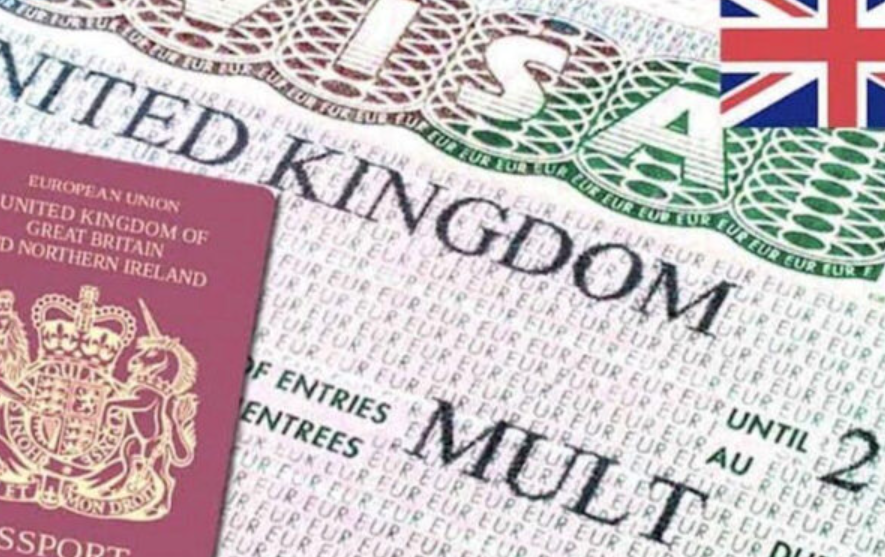Many talented international students face this hurdle, but the good news is, fully funded scholarships in Canada without IELTS are not just a myth. They exist, and with the right strategy, you can secure one and embark on your Canadian academic adventure.
Canada, renowned for its world-class education, multicultural environment, and welcoming society, attracts students from all corners of the globe. However, the costs associated with international education can be daunting. That’s where fully funded scholarships in Canada without IELTS come into play, offering a lifeline for ambitious individuals.
For many international students, the dream of studying in Canada remains tantalizingly close, yet seemingly obscured by the imposing shadow of standardized English proficiency tests. This guide is your compass, your roadmap, and your unwavering companion in navigating the often-complex terrain of fully funded scholarships in Canada without IELTS.
Why Pursue Fully Funded Scholarships in Canada Without IELTS?
The allure of studying in Canada is undeniable: a world-class education, a welcoming multicultural society, and a landscape that inspires awe. However, the financial burden of international education, coupled with the often-stressful IELTS requirement, can deter even the most determined students.
This is where the pursuit of fully funded scholarships in Canada without IELTS transforms from a mere aspiration to a powerful catalyst for personal and academic growth. Let’s delve deeper into the compelling reasons why this path is worth exploring:
-
Financial Liberation: Eradicating the Barriers of Cost
- Beyond Tuition Fees: A fully funded scholarship transcends the mere coverage of tuition. It’s a comprehensive package that encompasses living expenses, including accommodation, food, and transportation, allowing you to focus entirely on your studies.
- Research and Travel Funding: Many fully funded opportunities extend to research grants, conference attendance, and travel, enabling you to engage in invaluable academic and professional experiences.
- Reduced Financial Stress: The absence of financial strain fosters a conducive learning environment, allowing you to thrive academically and personally without the constant worry of mounting expenses. This financial liberation transforms your academic journey into a period of focused growth and exploration.
-
Time Optimization: Reclaiming Precious Moments
- Beyond the Test Itself: Preparing for the IELTS is not merely about the exam day; it involves months of rigorous study, practice tests, and potential anxiety. This time could be better utilized for research, networking, or developing other crucial skills.
- Accelerated Application Process: Bypassing the IELTS allows you to streamline your application process, focusing on crafting a compelling statement of purpose, securing strong letters of recommendation, and researching potential supervisors.
- Enhanced Focus on Academic Pursuits: The time saved can be reinvested in deepening your understanding of your chosen field, engaging in research, and building a strong academic foundation.
-
Equitable Access: Opening Doors for Diverse Talent
- Recognizing Diverse Abilities: Standardized tests like the IELTS may not accurately reflect a student’s true potential. Many individuals possess exceptional academic and research abilities but struggle with standardized testing formats.
- Promoting Inclusivity: Universities that accept alternative proofs of English proficiency demonstrate a commitment to inclusivity, fostering a diverse academic environment where talent is recognized regardless of standardized test scores.
- Empowering Underrepresented Groups: This approach empowers students from diverse linguistic backgrounds and socioeconomic statuses, providing them with equitable opportunities to pursue higher education in Canada.
-
Holistic Evaluation: Valuing More Than a Score
- Beyond Linguistic Proficiency: Academic success hinges on a multitude of factors, including critical thinking, research skills, and intellectual curiosity. Universities that accept alternative proofs of English proficiency recognize the importance of these qualities.
- Comprehensive Assessment: Alternative assessments, such as interviews, writing samples, and letters of recommendation, provide a more comprehensive understanding of a student’s abilities and potential.
- Recognizing Prior Achievements: Prior education in English, publications, and professional experience can serve as compelling evidence of English proficiency, demonstrating a student’s ability to succeed in an English-speaking academic environment.
-
Personal Empowerment: Building Confidence and Resilience
- Overcoming Test Anxiety: For many students, the IELTS can be a source of significant anxiety. Bypassing it can boost confidence and create a more positive application experience.
- Embracing Alternative Pathways: Successfully securing a scholarship without the IELTS demonstrates resourcefulness, resilience, and the ability to navigate complex processes.
- Fostering a Sense of Achievement: This achievement instills a sense of empowerment, setting the stage for a successful and fulfilling academic journey in Canada.
Pursuing fully funded scholarships in Canada without IELTS is about more than just financial aid. It’s about unlocking doors to academic excellence, fostering inclusivity, and empowering students to reach their full potential. It’s about recognizing that talent transcends standardized tests and that a student’s journey should be defined by their passion, intellect, and drive, not by a single score.
Eligibility Criteria for Fully Funded Scholarships in Canada without IELTS for International Students
The pursuit of fully funded scholarships in Canada without IELTS is a journey that demands meticulous attention to detail, particularly when it comes to understanding the eligibility criteria. While the absence of the IELTS requirement is a significant advantage, other stringent conditions often apply. These criteria are designed to ensure that scholarship recipients possess the academic prowess, research potential, and personal qualities necessary to thrive in Canada’s rigorous academic environment. Let’s dissect these criteria in detail:
-
Academic Excellence:
- High GPA/Academic Standing: Universities and scholarship providers invariably prioritize academic merit. A consistently high GPA (Grade Point Average) or equivalent academic standing is paramount. This demonstrates a student’s ability to excel in a challenging academic environment.
- Relevant Academic Background: Your previous academic qualifications should align with the program you’re applying for. This ensures that you possess the foundational knowledge necessary to succeed in your chosen field of study.
- Transcript Evaluation: Your academic transcripts will be meticulously evaluated to assess your performance in relevant courses. Strong performance in core subjects related to your intended field of study is crucial.
- Research Potential (for Graduate Studies): For graduate-level scholarships, evidence of research potential is highly valued. This can include publications, research projects, presentations, and a well-defined research proposal.
-
Alternative Proof of English Proficiency:
- Prior Education in English: Completing your undergraduate or graduate studies in an English-speaking country is often considered sufficient proof of English proficiency. You may need to provide official transcripts and letters from your previous institution.
- University-Specific Language Tests: Some universities administer their own English language assessments. These tests may be conducted online or in person and are designed to evaluate your speaking, listening, reading, and writing skills.
- English Language Certificates: Certificates from recognized English language schools or programs may be accepted. However, the specific requirements vary depending on the institution.
- Online Interviews: Interviews conducted by university faculty can assess your English proficiency and your suitability for the program.
- Letters of Recommendation (Language Proficiency Emphasis): Letters of recommendation that explicitly address your English language skills can be invaluable. These letters should provide specific examples of your ability to communicate effectively in English.
- Writing Samples: Submitting well-written essays, research papers, or other academic writing samples can demonstrate your ability to communicate effectively in written English.
-
Program-Specific Requirements:
- Specific Field of Study: Many scholarships are awarded for specific fields of study, such as STEM, humanities, or social sciences. Ensure your academic background and research interests align with the scholarship’s focus.
- Research Proposal (for Graduate Studies): For research-based scholarships, a compelling research proposal is essential. This proposal should demonstrate your research skills, originality, and the potential impact of your research.
- Work Experience (for Professional Programs): Some scholarships may require relevant work experience, particularly for professional programs like MBA or engineering.
- Portfolio (for Arts and Design Programs): If applying for arts or design programs, a strong portfolio showcasing your creative work is crucial.
-
Nationality and Residency Requirements:
- Specific Nationalities: Some scholarships are restricted to students from specific countries or regions. Carefully review the eligibility criteria to ensure you meet the nationality requirements.
- Residency Status: Some scholarships may require you to be a resident of a specific country or region.
- Visa Requirements: You must meet the Canadian visa requirements for international students.
-
Personal Qualities and Extracurricular Activities:
- Leadership Skills: Demonstrating leadership qualities through extracurricular activities, volunteer work, or professional experience can strengthen your application.
- Community Involvement: Participation in community service or volunteer activities showcases your commitment to social responsibility.
- Intercultural Skills: Canada is a multicultural nation, and universities value students who possess strong intercultural skills and a willingness to embrace diversity.
- Motivation and Resilience: Your statement of purpose and letters of recommendation should highlight your motivation, resilience, and ability to overcome challenges.
-
Financial Need (in some cases):
- Demonstrating Financial Need: Some scholarships may prioritize students from financially disadvantaged backgrounds. You may need to provide documentation to support your financial need.
- Age Restrictions (in some cases):
- Age Limits: Certain scholarships may have age restrictions. Review the eligibility criteria carefully to ensure you meet the age requirements.
Understanding and meeting these eligibility criteria is crucial for maximizing your chances of securing a fully funded scholarship in Canada without IELTS. By meticulously addressing each requirement and crafting a compelling application, you can pave the way for a transformative academic journey in Canada.
Fully Funded Scholarships in Canada without IELTS for International Students
The pursuit of academic excellence in Canada, without the IELTS hurdle, is a journey paved with opportunities, albeit ones that require meticulous research and a strategic approach. While a “one-size-fits-all” list is elusive due to the dynamic nature of scholarship offerings, we can illuminate the types of fully funded scholarships and strategies to find them, focusing on the potential for IELTS alternatives.
-
University of Winnipeg Graduate Studies Awards:
The University of Winnipeg, known for its inclusive environment, offers various graduate studies awards that can be fully funded, often with flexibility regarding English proficiency. Applicants are evaluated based on academic merit and research potential. The university may accept alternative proofs of English, particularly if prior education was conducted in English, or if a student passes a university-administered English evaluation. Successful candidates exhibit strong academic records and compelling research proposals, demonstrating a clear alignment with the university’s research focus.
-
Brock University Graduate Scholarships:
Brock University provides a range of graduate scholarships that can cover tuition and living expenses. They prioritize academic excellence and research potential, and in certain programs, may consider alternative proofs of English language proficiency. Applicants should highlight their research experience and academic achievements. The university looks for candidates who can contribute significantly to its research community and demonstrate a clear understanding of their chosen field.
-
Carleton University Graduate Funding:
Carleton University offers comprehensive graduate funding packages, which can include tuition waivers and stipends. The university evaluates applicants based on their academic records, research proposals, and letters of recommendation. While IELTS may be preferred, strong alternative evidence of English competency, such as previous English-medium education, can be considered. The university seeks candidates with strong analytical skills and a commitment to research.
-
Memorial University of Newfoundland Graduate Fellowships:
Memorial University of Newfoundland provides generous graduate fellowships, often fully funded, to attract top international students. The university values academic excellence and research potential. In certain circumstances, especially for research-focused programs, alternative proof of English proficiency may be considered. Applicants should demonstrate a strong research background and a clear alignment with the university’s research priorities.
-
Vanier Canada Graduate Scholarships (with exceptions):
While the Vanier CGS typically requires IELTS, exceptional candidates with outstanding academic records and research potential may be considered even with alternative English proficiency documentation. The Vanier CGS is one of Canada’s most prestigious awards, providing substantial funding for doctoral students. Applicants must demonstrate exceptional academic achievement, research potential, and leadership skills.
-
IDRC Doctoral Research Awards:
The International Development Research Centre (IDRC) offers doctoral research awards to support students pursuing research related to international development. While IELTS is often required, demonstrating significant research experience and strong English writing skills through publications or research proposals may be considered. The IDRC prioritizes research that contributes to positive change in developing countries.
-
Ontario Graduate Scholarships (OGS) (with university flexibility):
The Ontario Graduate Scholarships are funded by the Ontario government and participating universities. While they often require proof of English proficiency, some universities may show flexibility based on exceptional academic merit and alternative evidence. Applicants should possess a strong academic record and demonstrate their research potential.
-
University of Saskatchewan Graduate Scholarships:
The University of Saskatchewan offers various graduate scholarships that can be fully funded. They evaluate applicants based on academic excellence and research potential. In some departments, particularly those focused on research, alternative evidence of English proficiency may be accepted. Applicants should demonstrate a clear research focus and strong academic credentials.
-
University of Manitoba Graduate Fellowships:
The University of Manitoba provides generous graduate fellowships that can fully fund international students. The university prioritizes academic excellence and research potential. In certain circumstances, they may accept alternative proofs of English proficiency, especially if a student’s previous academic work was in English. Applicants should show strong research skills and academic records.
-
McGill University Graduate Funding (department specific exceptions):
McGill University, while often requiring IELTS, has departments that may be more flexible, especially in research-intensive fields. Outstanding academic records and strong alternative evidence of English ability, such as publications, can be presented. Applicants must showcase a strong academic background and research capabilities.
-
University of Alberta Graduate Awards (department specific exceptions):
The University of Alberta provides various graduate awards that can be fully funded. Some departments may consider alternative proofs of English proficiency, especially for students with strong research backgrounds. Applicants should possess excellent academic records and a clear research focus.
-
Concordia University Graduate Scholarships:
Concordia University offers graduate scholarships that can be fully funded. They value academic excellence and research potential. Some departments may accept alternative proofs of English proficiency, especially for students with prior education in English. Applicants should demonstrate strong academic qualifications and research skills.
-
Dalhousie University Graduate Scholarships:
Dalhousie University offers graduate scholarships that can cover tuition and living expenses. In some instances, especially for research-intensive programs, they may consider alternative proofs of English proficiency. Applicants should showcase strong academic records and research potential.
By adopting a proactive and strategic approach, you can unlock the doors to fully funded scholarships in Canada without IELTS, paving the way for a transformative academic experience.
The Future of Scholarships without IELTS in Canada
The trajectory of higher education is constantly shifting, and the landscape of fully funded scholarships in Canada without IELTS is no exception. As Canada continues to position itself as a global hub for knowledge and innovation, the future of these scholarships holds immense potential for international students. Several factors are shaping this evolving landscape, promising greater accessibility and inclusivity.
-
Increased Recognition of Diverse Language Proficiency:
The traditional reliance on standardized tests like the IELTS is gradually being challenged. Universities are increasingly recognizing that language proficiency is multifaceted and that alternative assessments can provide a more holistic evaluation of a student’s abilities. With the rise of online interviews, writing samples, and the acceptance of prior English-medium education, the future points towards a more flexible and inclusive approach. This shift acknowledges that linguistic competence is not solely defined by a test score, but also by practical application and contextual understanding.
-
Technological Advancements in Language Assessment:
The advent of AI-powered language assessment tools and online platforms is revolutionizing the way English proficiency is evaluated. These technologies offer personalized assessments, adaptive testing, and real-time feedback, providing a more accurate and efficient way to gauge a student’s language skills. As these technologies mature, they are likely to become increasingly integrated into the scholarship application process, potentially replacing or supplementing traditional standardized tests.
-
Emphasis on Holistic Evaluation and Academic Merit:
The future of scholarships will likely place greater emphasis on holistic evaluation, considering factors beyond language proficiency. Universities will increasingly prioritize academic merit, research potential, and personal qualities, recognizing that these factors are crucial for success in a rigorous academic environment. This shift will create a more equitable playing field for students who may excel in other areas but struggle with standardized tests.
-
Expanding Partnerships and International Collaborations:
Canadian universities are increasingly forging partnerships with international institutions and organizations, fostering global collaborations and exchange programs. These partnerships often include scholarship opportunities that may have more flexible language requirements, reflecting the diverse linguistic backgrounds of participating students. As these collaborations expand, the availability of scholarships without IELTS is likely to increase.
-
Increased Government Initiatives and Funding:
The Canadian government is committed to attracting top international talent and fostering a diverse academic environment. This commitment is likely to translate into increased funding for scholarships and initiatives that support international students, including those who may not meet traditional language requirements. Government-funded programs are likely to become more inclusive, recognizing the value of diverse perspectives and experiences.
-
Focus on Specific Fields of Study and Research Areas:
The future may see a greater focus on scholarships tailored to specific fields of study and research areas. Universities and funding agencies are likely to prioritize students with expertise in areas that align with Canada’s national research priorities, such as AI, climate change, and healthcare. In these fields, where research potential is paramount, language proficiency may be assessed more flexibly.
-
Streamlined Application Processes and Increased Accessibility:
Technological advancements and increased digitalization are likely to streamline the scholarship application process, making it more accessible to international students. Online portals, automated application systems, and virtual information sessions will reduce the barriers to entry, allowing students from diverse backgrounds to apply with greater ease.
-
Growing Recognition of Regional English Proficiency:
As the global landscape of English language use evolves, there’s a growing recognition of regional variations and dialects. Universities are becoming more open to accepting alternative forms of English proficiency evidence that reflect these diverse linguistic realities. This trend is likely to continue, further expanding the pool of eligible applicants.
-
Increased University Autonomy in Admission Decisions:
Universities are increasingly asserting their autonomy in admission decisions, recognizing that they are best positioned to evaluate the suitability of individual applicants. This trend is likely to lead to greater flexibility in language requirements, as universities develop their own internal assessments and criteria.
-
Emphasis on Intercultural Competence and Global Citizenship:
As Canada continues to embrace its multicultural identity, universities are increasingly valuing students who possess intercultural competence and a global perspective. Scholarships are likely to prioritize applicants who can contribute to a diverse and inclusive academic community, regardless of their standardized test scores.
The future of fully funded scholarships in Canada without IELTS is bright, promising greater accessibility, inclusivity, and recognition of diverse talent. As the educational landscape evolves, international students can expect to find more opportunities to pursue their academic dreams in Canada, free from the constraints of traditional language requirements.
Conclusion
The pursuit of fully funded scholarships in Canada without IELTS is becoming increasingly viable. With evolving university policies, technological advancements in language assessment, and a growing emphasis on holistic evaluation, the future holds promise for greater accessibility. By focusing on academic excellence, alternative proof of English proficiency, and a compelling application, international students can unlock their Canadian academic dreams.






